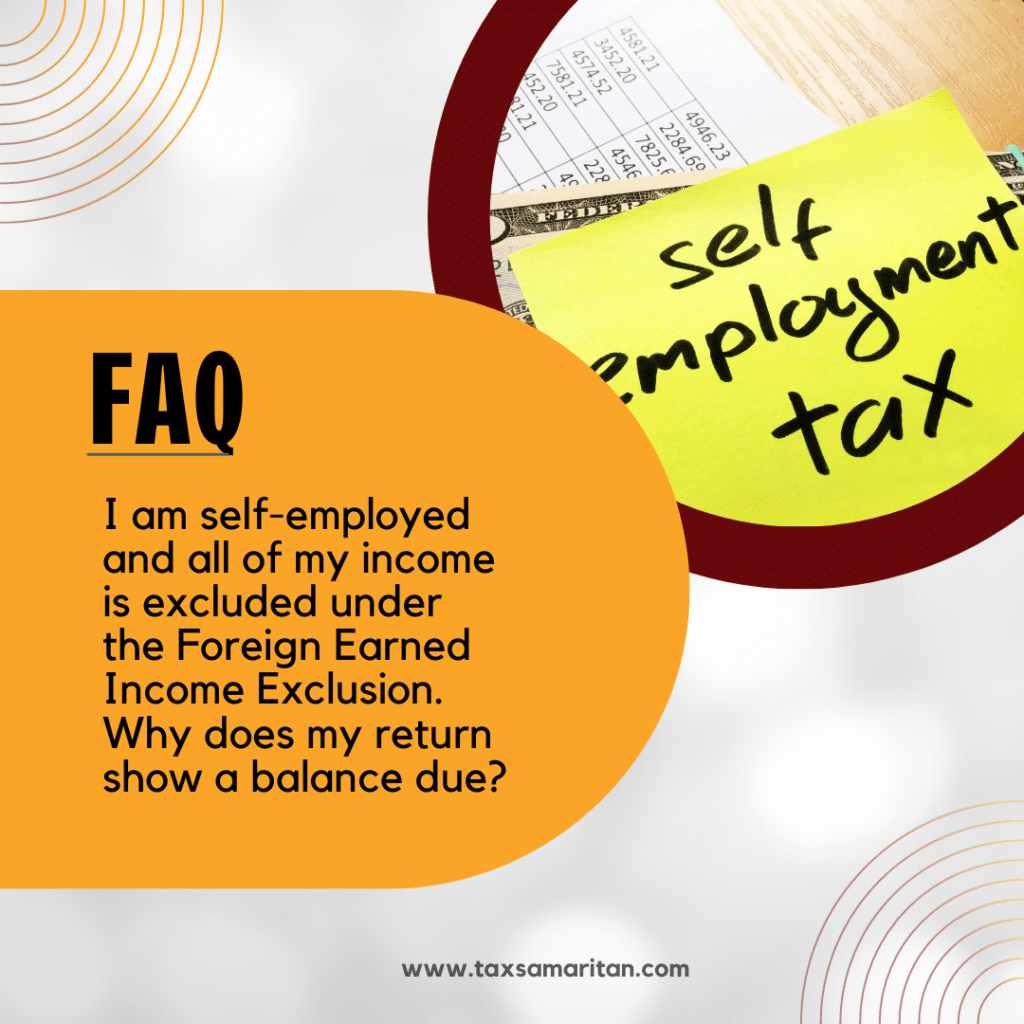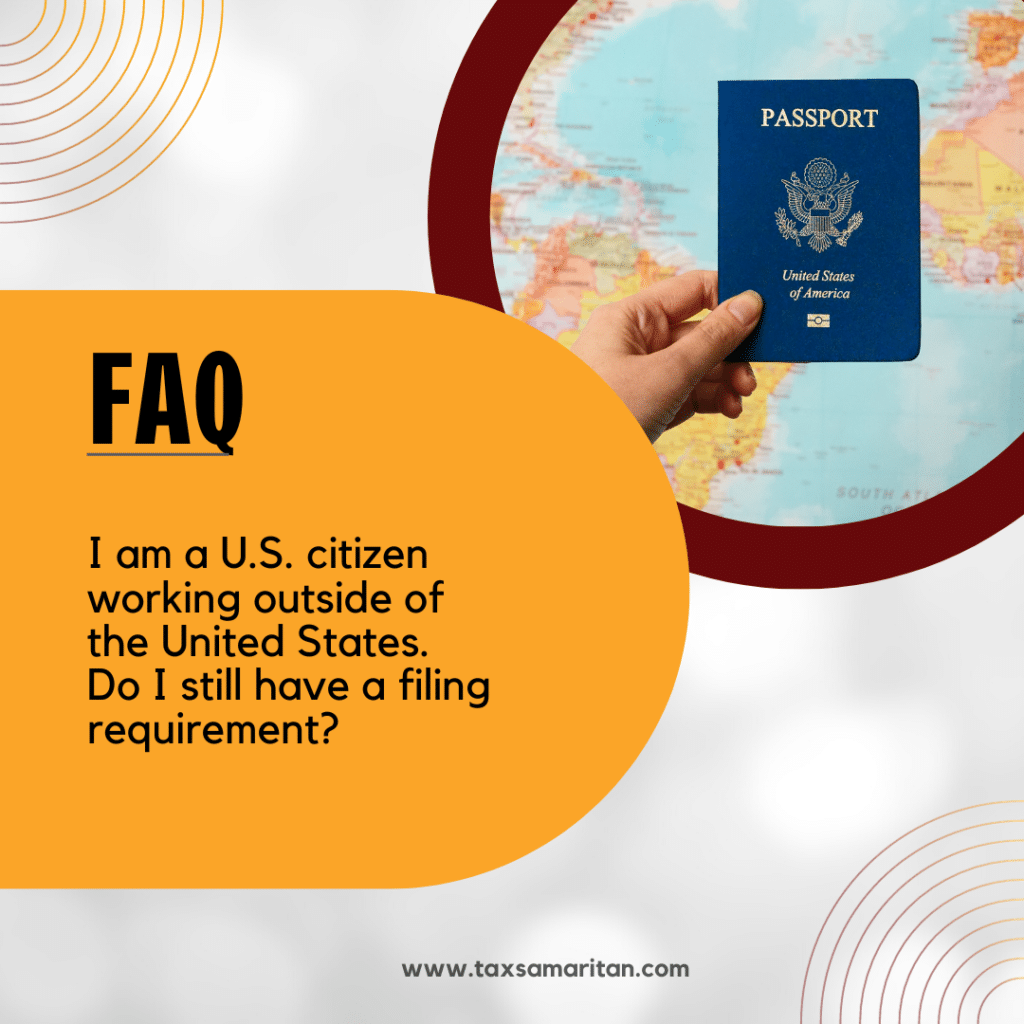FAQs - Foreign Earned Income Exclusion
I am self-employed and all of my income is excluded under the Foreign Earned Income Exclusion. Why does my return show a balance due?

Self-employed taxpayers must pay self-employment tax on their net business income based on the IRS’ current rates, unless you are in a country with a Totalization Agreement. For 2017, the Social Security tax rate is 6.2 percent of the first $127,000 you earn during the year. If you’re self-employed, this means you must pay a 12.4 percent Social Security tax (consisting of payments both as an employee and employer). The Medicare tax rate for 2017 is 1.45 percent, so self-employed taxpayers must pay a 2.9 percent tax. This tax applies to all of the income you earn during the year. You will need to pay estimated self-employment taxes on a quarterly basis to avoid interest and penalties.
I am a U.S. citizen working outside of the United States. Do I still have a filing requirement?

The U.S. is the only country that has taxation of worldwide income for all of its citizens, no matter where they live and regardless of how long they have been overseas. In fact, the U.S. is one of the the only countries that imposes what is known as a “diaspora tax” on its citizens.
If you are a U.S. citizen or a resident alien, the rules for filing income, estate and gift tax returns, along with paying estimated tax, are generally the same, whether you are in the United States or abroad. With taxation of worldwide income, your U.S. and foreign income is subject to U.S. income tax, regardless of where you reside. It is a citizenship-based income tax.
